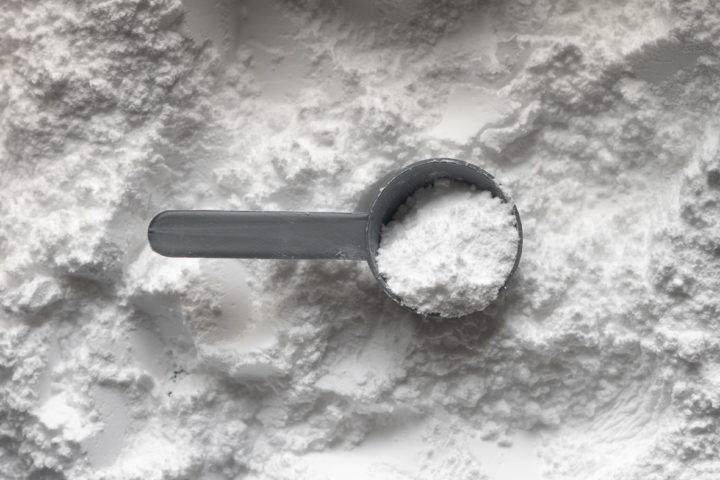If someone asked you, ‘Which pre-workout substance do you think is the most misunderstood?’ the correct response would be creatine. Creatine is one of the dietary supplements that has been used in the fitness industry for the longest amount of time.
However, despite its popularity, there are many misconceptions regarding the advantages of the components and the negative consequences they cause. You have undoubtedly heard of creatine in pre-workouts, even if you are not an athlete.
It is one of the most commonly used components in the health and fitness business that has received the greatest attention from researchers. Due to the prevalence of certain misconceptions, it is difficult for the average consumer to determine whether or not to take the supplement.
In this article, we will go over the facts and misconceptions about creatine to help you determine whether you want it or not.
What is Creatine?
If you were to ask professional athletes what the most important dietary supplement or component is for them, the answer would almost certainly be creatine. Since it first appeared on the market, creatine has quickly risen to the top of the list of the most desired components and supplements.
Creatine is an amino acid that not only provides you with appropriate quantities of energy but also assists in the growth of your muscular mass. It is a chemical that can be discovered in the cells of your muscles. During high-intensity or heavy lifting, it assists your muscles in producing energy. Creatine is an excellent energy source before, during, and after your activity. Creatine and amino acids contribute to the body’s protein production and have several similarities. Energy is sent to your body naturally without any severe side effects.
How Does Creatine Work?
Creatine is metabolized by the process of glycolysis, which is an energy route. This Phosphagen system breaks down glucose from carbohydrates, which results in the production of ATP. The primary function of intense exercise is to constantly strive toward increasing the reserves in your muscles. These extra reserves may be used later to generate more ATP for the cell.
Consuming creatine also raises the quantity of phosphate that is accessible in the body, which results in a surge in the amount of ATP that is produced, which boosts both your stamina and the energy levels of your cells.
Working out with weights or doing other types of intense exercise demands a lot of energy, The body does naturally produce some creatine, especially in the muscles, but you may need an additional boost both before and after your exercise.
What Are the Benefits of Creatine?
Creatine is an all-natural supplement that can enhance your athletic performance and get you closer to your objectives in a shorter time. Creatine comes in powder form. It is important to understand the major advantage of creatine is to boost your strength and power when you are working out. The following is a list of some benefits of regularly using creatine supplements.
- Improves athletic performance.
- Enhances muscle development.
- Produces more energy in muscle.
- Lowers your blood sugar levels.
- Improves cognitive functions.
- Helps reduce fatigue and tiredness.
Does Creatine Enhance Muscle Gain?
Creatine is widely used because of its effectiveness in promoting muscular development. It is the most commonly used natural supplement and component for developing muscles.
According to research, creatine can more than double both your strength and percentage of lean muscle mass. Numerous studies have shown the usefulness of taking creatine in supplement form and how efficient it is for promoting new muscle development.
Creatine serves its purpose in the body by being stored within the muscle cells and enhancing the amount of water surrounding them. This leads to an improvement in strength and fuller growth of the muscles. Creatine may help in the development of muscle in a variety of different methods, some of which include the following:
- Enhances cell signaling.
- Lowers the protein myostatin.
- Enhances cell hydration levels.
- Raising hormone levels helps in muscle growth.

Does Creatine Cause Water Retention?
Yes! Creatine can cause a little increase in fluid retention, although this effect is in no way harmful. This occurs due to creatine’s ability to attract water into the muscle cells.
If you take a creatine supplement, your body will hold onto the water that has been taken with it. It’s possible that keeping water in your muscles can help you develop more muscle mass. There are a few benefits of water retention in the body.
Since creatine is an osmotic substance, it causes the body to retain water because increased creatine levels also increase water levels. However, having some fluid in your body’s muscle cells might be ergogenic since it has quite a few positive effects on performance.
There’s a good possibility that many of you have questions like, ‘Are all the gains merely water?’ The answer to this is yes and no. In the beginning, the user will see increases mainly composed of fluid, but as time goes on you will acquire lean muscle mass.
Does Creatine Have Side Effects?
Researchers are constantly investigating creatine to learn more about its efficacy. Up to this point, there have been zero severe adverse effects. Creatine is a dietary supplement with a low risk of adverse effects and is widely used by athletes and professionals.
However, before you consume it, there are a few things you need to keep in mind. The water retention in your muscles due to taking creatine may cause you to experience some weight gain.
In addition, if you are trying to shed some pounds, you should steer clear of creatine. Other than this, there are no other potential adverse effects. Therefore, you do not have to worry about consuming creatine.
Can Creatine Make You Fat?
Yes! You’re likely scratching your head right now, wondering how creatine, which has been scientifically proven to have fantastic advantages like boosting performance and giving you energy, could lead you to put on weight. The answer is water weight.
As previously mentioned, when you consume creatine, your body pulls water towards the cells that make up your muscles. Users often report that this causes them to feel bloated.
In addition, taking creatine will mainly cause you to gain weight, most of which is due to increased water retention. Since the water retention is so minimal, you won’t be able to notice much of a difference in your body shape. Secondly, this water weight is not permanent. All you have to do is keep up your regular workout routine and eat healthily.
Common Myths and Misconceptions about Creatine
Creatine is the subject of a vast number of misconceptions. To boost sales, such misconceptions are exaggerated and circulated on the internet. Many people are now unsure about the real effects of the ingredients as a result of such misconceptions. Let’s look at some of the myths surrounding creatine.
Creatine Increases Body Fat Percentage
A common misconception is that creatine causes an increase in body fat. Creatine induces water retention, which may lead to a small increase in weight. However, this poses no health risk whatsoever. Taking creatine does not directly result in the loss or increase of any fat mass.
Creatine Damages Kidneys
Another common misconception is that a rise in blood creatinine, a consequence of the phosphocreatine pathway, causes kidney damage. This claim has no basis. One study found no side effects or changes in blood creatinine levels, a measure of renal function and damage, whether creatine was administered long-term or short-term.
Creatine is a Steroid
Absolutely not! Creatine is in no way even comparable to steroids. In terms of their chemical compounds, creatine and steroids are entirely different. Creatine is only an amino acid that assists in the muscle-building process by facilitating the process of protein synthesis.
Creatine is not for Women
One of the most controversial misconceptions regarding creatine is that it cannot be used by females. However, there is no evidence to support it. Numerous investigations on the use of creatine in female athlete groups have been conducted, and the findings have led researchers to conclude that it is safe for women to use creatine supplements. When males and females were compared side by side, there was no noticeable difference in either the benefits or the effects.
Creatine Causes Stomach Discomfort
This myth is only partially true, at best. When it comes to problems, a healthy individual will have none to deal with. It has been mentioned by specialists and medical professionals that the only people who may experience discomfort in their stomach are those who have previously struggled with gastric or stomach difficulties. These issues only manifest themselves in between one and two percent of the population on average. There is widespread misunderstanding that everyone may have discomfort in their stomach when using creatine.
Conclusion
Creatine has been shown to raise both your energy storage and your performance in athletic events. Creatine is one of the dietary supplements studied the most during their existence.
Because of this, a significant number of professional athletes and bodybuilders utilize it. The use of creatine is risk-free and results in many positive effects.
RELATED POSTS:
- Should Runners Take Creatine?
- Should Creatine Be in a Pre-Workout?
- Glossary of Fitness and Training Terms
- Pre-Workout Ingredients, Dosage & Importance
- 50 Interesting Facts About Supplements
